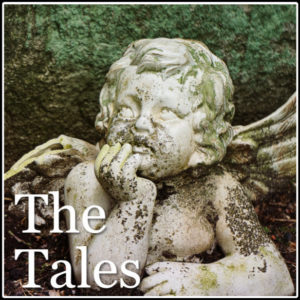“I have buried in this book certain bones, so that certain dogs with great curiosity and strong scent may dig down to them and, strange thing, when they have done so, are men.”
~ George Ivanovitch Gurdjieff
 That’s the beguiling promise Gurdjieff made. Quite likely it is correct, but the required effort to fathom the gist of The Tales is significant.
That’s the beguiling promise Gurdjieff made. Quite likely it is correct, but the required effort to fathom the gist of The Tales is significant.
It begins with learning how to read.
If you thought you had that skill The Tales will teach you otherwise. Let us begin with the first paragraph of the book. It reads as follows.
Original written in Russian and Armenian. Translations into other languages have been made under the personal direction of the au- thor, by a group of translators chosen by him and specially trained according to their defined individualities, in conformity with the text to be translated and in relation to the philological particularities of each language.
You may have missed it. Depending on the copy you have it is likely to be found after the copyright notice and before the ISBN number on the first page, which readers generally ignore. However this paragraph is important.
Gurdjieff clearly states here that The Tales has been written to accord with the “philological particularities” of each language into which it has been translated. He notes that the original was written in a combination of Russian and Armenian and was then translated into other languages. Gurdjieff chose the translators and specifically trained them, both in respect of the text and in respect of “philological particularities” of each language.
Gurdjieff accorded great importance to philology. It is the branch of knowledge that deals with the structure, historical development, and relationships of a language or languages. As a sub-discipline, it includes etymology, the study of the origins and history of words. The etymology of the word “philology” aligns with Gurdjieff ’s opinion of the discipline. It derives from the Greek philologia meaning “love of learning.”
In the words of Louise March, the principal editor of the German version of The Tales, Gurdjieff “stated clearly that philology was a better route to Truth than philosophy.”
There is more than one reason why you will not get far if with The Tales if you ignore the etymology of the words that Gurdjieff chose. In places you will simply miss the meaning that is right there on the page waiting for you to claim it.
One of the great ironies of The Tales is that in various places he tells you, the reader, exactly what to do to read the book, and almost everyone ignores his advice.
A long time ago I asked Rina Hands, one of Gurdjieff’s pupils, whether he really expected us all to read the book outloud. She looked at me and said, quite simply: “If that’s what he said, then that’s what he meant.”
She is correct. It is necessary to examine all of Gurdjieff’s advice, and we shall do so in this series of articles.
The first point is this: The etymology of the words Gurdjeff chose matters. There is nothing accidental about his word choice.